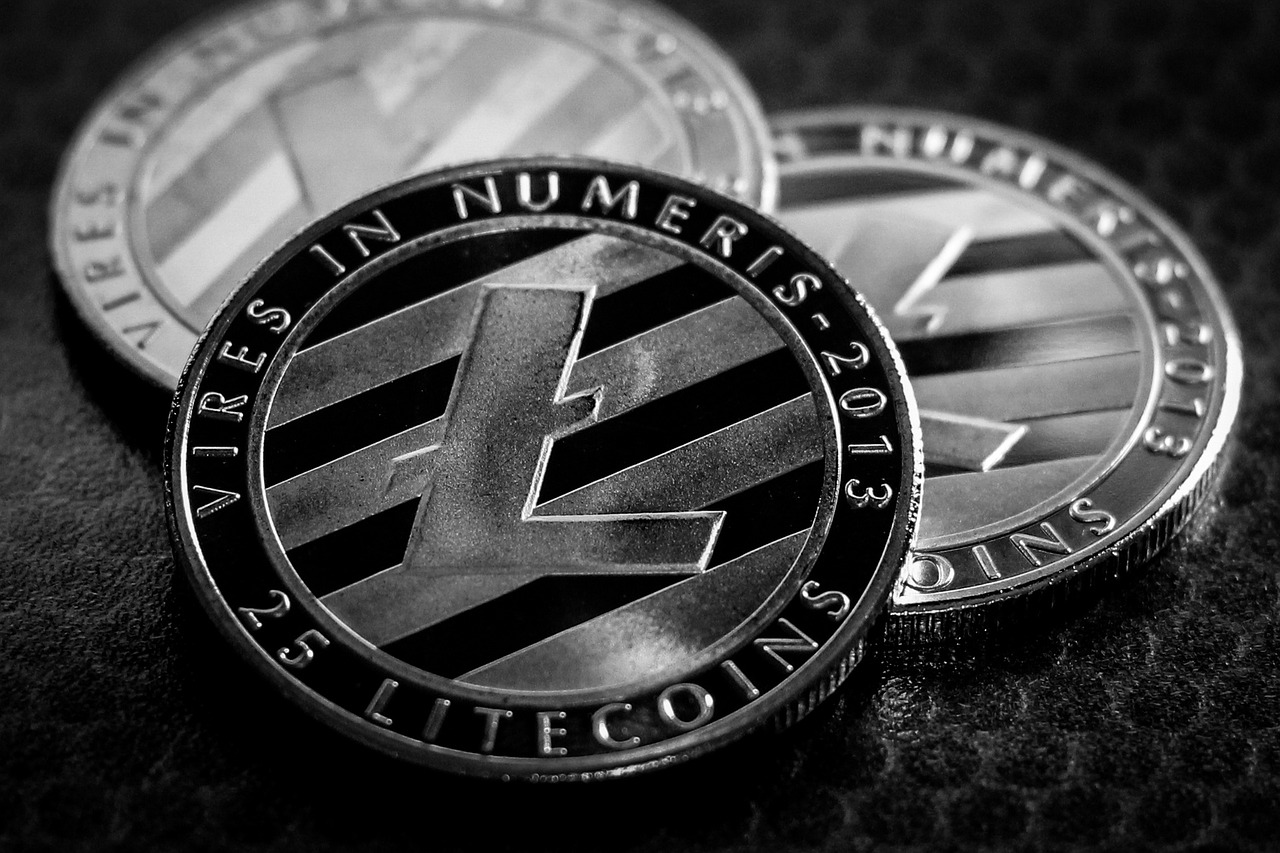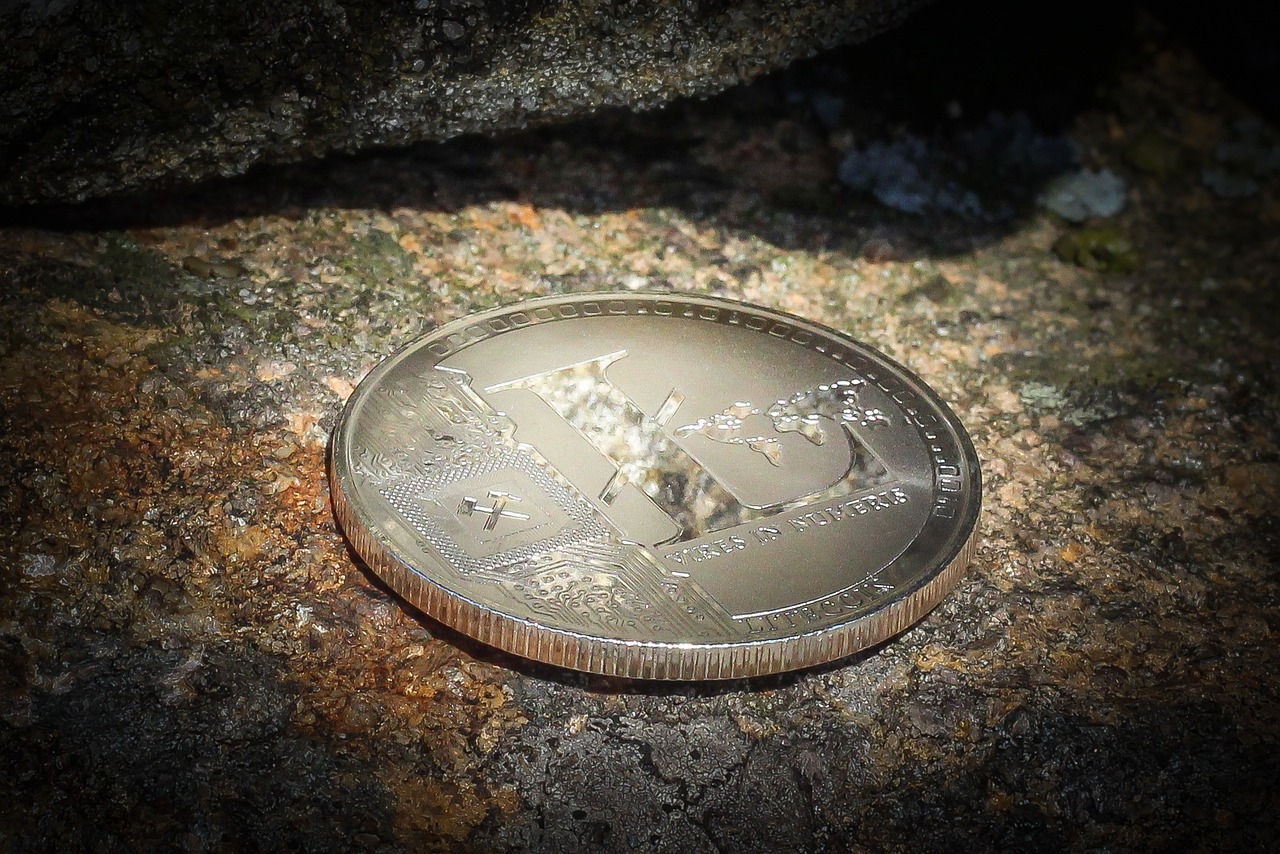Nexus Mutual - A Decentralized Insurance Platform
In a world where uncertainty reigns supreme, insurance has long been a safety net, providing individuals and businesses with peace of mind. But what if I told you that traditional insurance could be revolutionized? Enter Nexus Mutual, a groundbreaking decentralized insurance platform that is reshaping the way we think about risk management and coverage in the digital age. By harnessing the power of blockchain technology, Nexus Mutual is not just a service; it's a community-driven solution that empowers users to take control of their insurance needs.
Imagine a system where you’re not just a policyholder, but a member of a cooperative, working together with others to share risks and rewards. This is the essence of Nexus Mutual. Unlike conventional insurance models that often feel impersonal and bureaucratic, Nexus Mutual operates on principles of transparency, trust, and collaboration. It’s like having a safety net woven from the contributions of many, rather than relying solely on a faceless corporation.
The decentralized nature of Nexus Mutual allows for a more equitable distribution of resources. Members pool their funds to cover claims, creating a community that supports one another in times of need. This peer-to-peer risk-sharing mechanism not only enhances the user experience but also reduces overhead costs, making insurance more affordable. In fact, many users have reported lower premiums compared to traditional insurance providers, all while enjoying a more personalized approach to coverage.
So, how does it all work? The magic lies in the intricate web of smart contracts, which automate processes and ensure that everything runs smoothly without the need for intermediaries. Think of smart contracts as the backbone of Nexus Mutual, providing a framework that guarantees fairness and efficiency. They eliminate the guesswork and ambiguity often associated with claims processing, allowing members to focus on what truly matters—supporting each other.
As we delve deeper into the workings of Nexus Mutual, we will explore its operational framework, the role of smart contracts, and the unique claims assessment process. We’ll also take a closer look at the token economics that drive the platform and how they incentivize participation among members. By the end of this journey, you’ll understand why Nexus Mutual is not just an alternative to traditional insurance, but a revolutionary model that has the potential to redefine the industry.
Ready to learn more? Let’s dive into the fascinating world of decentralized insurance and discover how Nexus Mutual is paving the way for a brighter, more secure future.

Understanding Decentralized Insurance
Decentralized insurance is a revolutionary concept that is reshaping the traditional insurance industry. At its core, this model leverages blockchain technology to create a system where individuals can share and manage risk in a more transparent and equitable manner. Imagine a world where you’re not just a policyholder but also a stakeholder in the very system that protects you. This is the essence of decentralized insurance—it transforms the conventional insurance landscape by allowing users to pool their resources and cover each other's claims.
Traditional insurance models often operate on a one-size-fits-all basis, where individuals pay premiums to a centralized company that holds all the power. In contrast, decentralized insurance platforms like Nexus Mutual empower users to take control of their own coverage. This shift from a centralized authority to a community-driven model offers several key benefits:
- Peer-to-peer risk sharing: Members of the community can share risks directly, which often leads to lower costs and more personalized coverage.
- Transparency: Blockchain technology ensures that all transactions are recorded and visible to all members, fostering trust and accountability.
- Community governance: Decisions are made collectively, allowing users to have a say in the platform’s operations and policies.
Furthermore, decentralized insurance eliminates many of the inefficiencies associated with traditional insurance models. By using smart contracts—self-executing contracts with the terms of the agreement directly written into code—Nexus Mutual automates claims processing and reduces administrative overhead. This not only speeds up the claims process but also minimizes the risk of fraud, as all actions are recorded on the blockchain.
In a world where uncertainty is the only certainty, decentralized insurance provides a fresh perspective on risk management. It’s not just about protecting assets; it’s about building a community where members support one another in times of need. As we delve deeper into how Nexus Mutual operates, it becomes clear that this platform is more than just an insurance provider; it’s a movement towards a more equitable and transparent future in risk management.
In summary, decentralized insurance is more than a buzzword; it represents a fundamental shift in how we think about risk and protection. By harnessing the power of blockchain technology, platforms like Nexus Mutual are setting the stage for a new era of insurance that prioritizes community, transparency, and empowerment.

How Nexus Mutual Works
Nexus Mutual operates on a unique model that fundamentally transforms the way insurance is perceived and utilized in the digital age. At its core, Nexus Mutual allows members to pool their resources together, creating a collaborative risk-sharing environment. This means that instead of relying on a traditional insurance company to manage claims and payouts, the community itself takes on that responsibility. It’s like having a group of friends who pitch in to help each other out when someone faces an unexpected expense—except this is done on a much larger scale and through the power of blockchain technology.
When a member joins Nexus Mutual, they become part of a community that collectively manages risk. Members contribute to a shared fund, which is then used to cover claims that arise within the network. This model not only fosters a sense of community but also encourages members to act in the best interest of one another, as the sustainability of the fund relies on everyone’s contributions and claims being managed judiciously.
One of the most fascinating aspects of Nexus Mutual is its emphasis on transparency and trust. Every transaction and claim is recorded on the blockchain, ensuring that all members can see how funds are being utilized. This level of transparency is a stark contrast to traditional insurance companies, where policies and claims processes can often feel opaque and convoluted. In essence, Nexus Mutual empowers its users by giving them a stake in the insurance process, making them not just policyholders but also decision-makers.
At the heart of Nexus Mutual's operations are smart contracts. These self-executing contracts automate various processes, from claim assessments to payouts, ensuring that everything runs smoothly without the need for intermediaries. Imagine a vending machine: you put in your money, select your item, and the machine delivers it without any human intervention. Smart contracts function similarly, executing actions based on predefined conditions. This automation not only enhances efficiency but also builds trust among members, as they can rely on the system to operate fairly and consistently.
Understanding how claims are assessed is crucial for potential users of Nexus Mutual. When a claim is made, it goes through a rigorous evaluation process. Members of the community participate in assessing the validity of claims, creating a democratic approach to decision-making. This collective assessment ensures that claims are evaluated fairly and that payouts are made only when justified. The criteria for successful payouts typically include:
- Verification of the incident that led to the claim.
- Assessment of the impact on the member's assets.
- Agreement by a majority of the community members involved in the assessment.
This collaborative approach not only helps in maintaining the integrity of the fund but also strengthens community bonds, as members work together to support each other.
The token economics of Nexus Mutual plays a vital role in incentivizing participation and ensuring the platform's sustainability. The native token, known as NXM, is used for various purposes within the ecosystem, including governance, staking, and claims payouts. Members can earn NXM tokens by contributing to the risk pool and participating in the claims assessment process. This creates a cycle of engagement where members are rewarded for their active involvement, fostering a vibrant and sustainable community.
In conclusion, Nexus Mutual's innovative approach to insurance through a decentralized model is a game-changer. By leveraging blockchain technology and smart contracts, it not only enhances transparency and trust but also empowers users to take control of their insurance needs. As the platform continues to evolve, it opens up exciting possibilities for the future of risk management in the digital age.
What is Nexus Mutual?
Nexus Mutual is a decentralized insurance platform that allows members to share risk and manage claims collectively through blockchain technology.
How do I become a member?
You can become a member by purchasing NXM tokens and participating in the Nexus Mutual community.
What types of claims can be covered?
Nexus Mutual primarily covers smart contract failures and other risks associated with the decentralized finance (DeFi) ecosystem.
How are claims assessed?
Claims are assessed through a community-driven process where members evaluate the validity of claims and vote on payouts.
What are the benefits of using Nexus Mutual?
Benefits include lower costs, increased transparency, community governance, and a more democratic approach to insurance.

The Role of Smart Contracts
Smart contracts are the backbone of Nexus Mutual, acting as the digital glue that binds the entire ecosystem together. Imagine them as self-executing agreements coded on the blockchain, where the terms of the contract are written directly into lines of code. This technology eliminates the need for intermediaries, making transactions faster, cheaper, and more secure. But what does this mean for you as a potential user? Well, it means you can trust that the rules of the game are clear and transparent, ensuring a level playing field for all participants.
One of the most significant advantages of smart contracts in Nexus Mutual is their ability to automate processes. For instance, when a claim is submitted, the smart contract automatically verifies the conditions under which a payout is warranted. This process not only speeds up claim assessments but also significantly reduces the chances of fraud. In traditional insurance models, lengthy investigations can delay payments, leaving claimants in a lurch. However, with smart contracts, the outcome is determined by predefined criteria, making the process straightforward and efficient.
Moreover, the transparency provided by smart contracts is a game-changer. Each contract is recorded on the blockchain, which means that anyone can view the transaction history. This level of transparency fosters trust among members, as they can see how funds are being managed and how claims are being processed. It's like having a window into the inner workings of the insurance process, allowing users to hold the platform accountable.
To further illustrate the importance of smart contracts, consider the following table that outlines their key features and benefits:
| Feature | Benefit |
|---|---|
| Automation | Reduces processing time and human error |
| Transparency | Builds trust among members |
| Cost-effectiveness | Minimizes administrative costs |
| Security | Protects against fraud and tampering |
In essence, smart contracts are not just a technological innovation; they represent a paradigm shift in how insurance can operate. By leveraging this technology, Nexus Mutual empowers its members to take control of their insurance needs, creating a more equitable and efficient system. So, if you've ever felt frustrated by the bureaucracy and inefficiency of traditional insurance, Nexus Mutual's smart contracts could be the breath of fresh air you've been waiting for.
- What are smart contracts? Smart contracts are self-executing contracts with the terms of the agreement directly written into code on the blockchain.
- How do smart contracts enhance trust? They provide transparency by allowing all transactions to be publicly viewed on the blockchain, ensuring accountability.
- Can I modify a smart contract after it's deployed? No, once a smart contract is deployed, it cannot be altered. This ensures that the terms remain consistent and trustworthy.
- What happens if a claim is denied? The smart contract will automatically reject claims that do not meet the predefined criteria, but users can appeal the decision through the community governance process.

Claims Assessment Process
The in Nexus Mutual is designed to be transparent, fair, and efficient, ensuring that members feel confident when they file a claim. Unlike traditional insurance companies that often operate behind closed doors, Nexus Mutual embraces a community-driven approach. This means that when a claim is submitted, it is not just the insurance company that decides its fate; rather, it involves the input of the community members who have pooled their resources together.
When a claim is initiated, the first step is to submit the necessary documentation and evidence to support the claim. This could include details about the incident, any relevant contracts, and proof of loss. Once submitted, the claim enters a review phase where it is assessed by the Nexus Mutual community. Members, who have a vested interest in the outcome, will evaluate the claim based on established criteria. This process is not only about verifying the claim but also about engaging the community in the decision-making process, which fosters a sense of ownership and responsibility among members.
To further illustrate how the claims assessment works, here’s a simplified overview of the process:
- Claim Submission: Members submit their claims along with relevant documentation.
- Community Review: Other members review the claims based on a set of criteria.
- Decision Making: A vote is conducted among the community to determine the validity of the claim.
- Payout: If the claim is approved, the payout is processed from the pooled resources.
This peer-to-peer model not only enhances transparency but also reduces the potential for fraud, as the community members are incentivized to act fairly. Furthermore, the use of smart contracts automates parts of this process, ensuring that once a claim is approved, the payout occurs swiftly and without unnecessary delays. This integration of technology with community governance creates a unique ecosystem that stands in stark contrast to the often opaque practices of traditional insurance providers.
In summary, the claims assessment process at Nexus Mutual is a prime example of how decentralized platforms can innovate traditional systems. By leveraging community involvement and smart contracts, Nexus Mutual not only streamlines the claims process but also builds a robust framework of trust among its members. This is crucial in a sector where trust is paramount, and it positions Nexus Mutual as a forward-thinking leader in the decentralized insurance landscape.
- How long does the claims assessment process take? The duration can vary depending on the complexity of the claim and the responsiveness of the community members involved in the review process.
- What types of claims can be submitted? Claims can range from smart contract failures to other risks covered under the Nexus Mutual policy framework.
- Is there a limit to how much can be claimed? Yes, each claim is subject to the limits set out in the mutual’s policy guidelines, which are agreed upon by the community.

Token Economics
The of Nexus Mutual is a crucial aspect that underpins its entire ecosystem, driving participation and ensuring sustainability. At the heart of this model is the native token, known as NXM, which serves multiple purposes within the platform. The design of the tokenomics is not just about creating a currency; it is about establishing a system that aligns the interests of all participants, including members, claim assessors, and the broader community.
One of the primary functions of the NXM token is to enable members to participate in the insurance pool. When users purchase coverage, they pay in NXM tokens, which are then used to back the insurance claims. This creates a direct link between the token's value and the overall health of the insurance pool. As more members join and contribute to the pool, the demand for NXM tokens increases, potentially driving up their value. This dynamic is akin to a thriving community where everyone’s investment leads to collective security and growth.
Another significant aspect of Nexus Mutual's token economics is the concept of staking. Members can stake their NXM tokens to provide coverage for specific risks. In return for this service, they earn rewards, creating an incentive structure that encourages active participation. The more tokens staked, the stronger the insurance pool becomes, reinforcing the idea that everyone has a stake in the system's success. This model not only enhances the overall liquidity of the platform but also aligns the interests of the members with the sustainability of the insurance offerings.
Furthermore, Nexus Mutual employs a unique mechanism for claims assessment and payouts, which is also tied to its token economics. When claims are made, they are evaluated by the community of members who hold NXM tokens. This decentralized approach to claims assessment ensures that the process is transparent and fair, as it relies on the collective judgment of the community rather than a centralized authority. The outcome of these assessments can also influence the token's value, as successful claims and a healthy claims ratio can lead to greater trust in the platform.
To illustrate the impact of token economics on the Nexus Mutual platform, consider the following table:
| Aspect | Description |
|---|---|
| Token Utility | Used for purchasing coverage, staking, and governance. |
| Staking Rewards | Members earn rewards for providing coverage by staking NXM tokens. |
| Claims Assessment | Community-driven process involving NXM token holders. |
| Value Dynamics | Token value correlates with the health of the insurance pool. |
In summary, the token economics of Nexus Mutual is intricately designed to foster a community-driven insurance model. By aligning the interests of all participants and creating incentives for active engagement, Nexus Mutual not only enhances its operational efficiency but also builds a resilient ecosystem that can adapt to the ever-evolving landscape of decentralized finance. As the platform continues to grow, the role of NXM tokens will be pivotal in shaping its future, making it an exciting space to watch.
- What is Nexus Mutual? Nexus Mutual is a decentralized insurance platform that utilizes blockchain technology to offer peer-to-peer risk-sharing solutions.
- How does the NXM token work? The NXM token is used for purchasing coverage, staking, and participating in governance, directly linking its value to the health of the insurance pool.
- What are the benefits of staking NXM tokens? Staking allows members to earn rewards while contributing to the insurance pool's strength and sustainability.
- How are claims evaluated in Nexus Mutual? Claims are assessed by the community of NXM token holders, ensuring a transparent and fair evaluation process.

Benefits of Using Nexus Mutual
When it comes to insurance, most people think of complex policies, endless paperwork, and the dreaded fine print. But with Nexus Mutual, the game is changing! This decentralized insurance platform is not just another option; it’s a revolution in how we think about risk management and coverage. So, what are the real benefits of using Nexus Mutual? Let’s dive in!
First off, one of the most appealing aspects of Nexus Mutual is its cost-effectiveness. Traditional insurance companies often have high overhead costs, which can lead to inflated premiums for policyholders. In contrast, Nexus Mutual operates on a peer-to-peer model where members pool their resources. This means lower costs for everyone involved. Imagine sharing the burden of risk with a group of friends rather than paying a large corporation—sounds much better, right?
Another significant advantage is the transparency that comes with blockchain technology. In the world of traditional insurance, claims processes can feel like a black box where you’re left wondering what’s happening behind the scenes. With Nexus Mutual, everything is recorded on the blockchain, making it easy to track transactions and claims. This level of visibility builds trust among members, as they can see how their contributions are being used and how claims are processed.
Moreover, Nexus Mutual promotes community governance. Members have a say in how the platform operates, including decisions about claims assessments and the overall direction of the mutual. This democratic approach contrasts sharply with traditional insurance companies, where decisions are often made by a distant board of directors. In Nexus Mutual, your voice matters, and you can actively participate in shaping the future of the insurance model.
Additionally, Nexus Mutual provides coverage for risks that traditional insurers often overlook. For instance, it offers coverage for smart contract failures in the blockchain ecosystem. This is a game changer for developers and users in the crypto space who need assurance against specific risks that conventional policies may not cover. The ability to tailor coverage to meet the unique needs of the digital age is a significant leap forward.
Finally, let’s not forget about the potential for earning rewards. Members who contribute to the mutual not only help cover risks but can also earn returns on their contributions. This creates a win-win situation where you’re not just paying for coverage; you’re also participating in a system that can yield financial benefits. It’s like having your cake and eating it too!
In summary, Nexus Mutual is not just about insurance; it’s about creating a community-driven, transparent, and cost-effective alternative to traditional insurance models. With its innovative approach, it’s paving the way for a future where insurance is more accessible and aligned with the needs of its users. So, if you’re looking for a fresh take on risk management, Nexus Mutual might just be the solution you’ve been searching for!
- What is Nexus Mutual? Nexus Mutual is a decentralized insurance platform that allows members to pool resources and share risks.
- How does the claims process work? Claims are assessed by the community, and payouts are made based on the mutual’s governance rules.
- Is it safe to use Nexus Mutual? Yes, it employs blockchain technology for transparency and security, making it a trustworthy option.
- Can I earn rewards? Yes, members can earn returns on their contributions while helping to cover claims.

Risks and Challenges
Even though Nexus Mutual is revolutionizing the insurance landscape, it’s not without its fair share of . As with any innovative platform that operates outside traditional frameworks, it faces hurdles that could impact its growth and sustainability. One of the most pressing challenges is regulatory scrutiny. As governments around the world are still grappling with how to classify and regulate decentralized platforms, Nexus Mutual must navigate a complex web of laws and regulations. This uncertainty could hinder its operations and deter potential users who are wary of engaging with a platform that might face legal challenges down the line.
Moreover, the concept of decentralized insurance itself is still relatively new and may not be fully understood by the average consumer. Many individuals are accustomed to conventional insurance models, which can make it difficult for Nexus Mutual to gain traction. The challenge lies in educating potential users about the benefits of a decentralized model, which includes peer-to-peer risk sharing and the elimination of middlemen. This educational gap can slow down market adoption, as users may be hesitant to switch from familiar systems to an untested model.
Another critical aspect to consider is market adoption. For Nexus Mutual to thrive, it needs a robust user base that actively participates in the risk-sharing model. If the platform fails to attract enough members, it may struggle to maintain liquidity, which is essential for covering claims. A lack of participation could lead to a vicious cycle where low user numbers result in fewer claims being paid out, further discouraging new users from joining.
To illustrate this point, let’s take a look at some of the potential risks Nexus Mutual faces:
| Risk | Description |
|---|---|
| Regulatory Scrutiny | Uncertainty in regulations could lead to operational challenges. |
| Market Adoption | Difficulty in attracting users may impact liquidity and sustainability. |
| Consumer Education | Potential users may not understand decentralized insurance, hindering adoption. |
In addition to these challenges, Nexus Mutual must also contend with technological risks. As a platform built on blockchain technology, it is susceptible to bugs, hacks, and other vulnerabilities that can compromise user trust. Ensuring the security of the platform is paramount, as any breach could lead to significant financial losses and damage to its reputation. The team behind Nexus Mutual must continuously innovate and upgrade their systems to safeguard against these threats.
Ultimately, while Nexus Mutual presents an exciting alternative to traditional insurance, it must overcome these risks and challenges to realize its full potential. The journey is undoubtedly fraught with obstacles, but with the right strategies and community support, it can carve out a significant niche in the decentralized insurance market.
- What is Nexus Mutual? Nexus Mutual is a decentralized insurance platform that allows members to pool resources to cover claims, utilizing blockchain technology for transparency and efficiency.
- How does decentralized insurance work? It operates on a peer-to-peer risk-sharing model, where members contribute to a shared pool that funds claims, eliminating the need for traditional insurance companies.
- What are the risks associated with Nexus Mutual? Key risks include regulatory scrutiny, market adoption challenges, and technological vulnerabilities.
- How can I participate in Nexus Mutual? Users can join by purchasing the native token and participating in the risk-sharing pool.

Regulatory Considerations
When diving into the world of decentralized insurance, one cannot overlook the **regulatory considerations** that accompany this innovative model. As Nexus Mutual operates in a space that is still relatively new, it faces a unique set of challenges that traditional insurance companies might not contend with. The decentralized nature of Nexus Mutual means that it does not operate under a single jurisdiction, which can lead to complications regarding compliance with various **regulatory frameworks** around the globe.
Regulatory bodies are increasingly scrutinizing decentralized finance (DeFi) platforms, and Nexus Mutual is no exception. The platform must navigate a complex landscape of laws that vary significantly from one region to another. For instance, while some countries embrace blockchain technology and encourage its growth, others impose stringent regulations that could hinder operations. This regulatory uncertainty can create a daunting environment for potential users who are cautious about the legitimacy and security of their investments.
One major area of concern is the **classification of tokens** used within the Nexus Mutual ecosystem. Depending on how these tokens are classified—whether as utility tokens, security tokens, or something else entirely—different regulations may apply. For example, if the tokens are deemed securities, Nexus Mutual may be required to adhere to more rigorous compliance measures, including registration with financial authorities. This classification can significantly impact how the platform operates and the level of transparency it must maintain.
Moreover, compliance with **anti-money laundering (AML)** and **know your customer (KYC)** regulations is another critical consideration. To foster trust among its users and ensure the platform's integrity, Nexus Mutual must implement measures that verify the identities of its members. This process not only protects the platform from potential abuses but also aligns it with global standards that regulators expect from financial institutions.
To address these challenges, Nexus Mutual has taken proactive steps by engaging with legal experts and regulatory bodies to ensure compliance. By adopting a transparent approach and being open to dialogue with regulators, the platform aims to establish itself as a **legitimate player** in the insurance industry. This commitment to compliance not only safeguards the platform but also builds trust among its community members.
In conclusion, while the regulatory landscape poses challenges for Nexus Mutual, it also presents an opportunity for the platform to differentiate itself through compliance and transparency. By navigating these complexities effectively, Nexus Mutual can pave the way for a more secure and trusted decentralized insurance ecosystem.
- What is Nexus Mutual? Nexus Mutual is a decentralized insurance platform that utilizes blockchain technology to offer innovative risk management solutions.
- How does Nexus Mutual handle regulatory compliance? Nexus Mutual actively engages with legal experts and regulatory bodies to ensure it meets compliance requirements across different jurisdictions.
- What are the benefits of using Nexus Mutual? Benefits include cost-effectiveness, transparency, and community governance, making it a compelling alternative to traditional insurance.
- Are there risks associated with using Nexus Mutual? Yes, risks include regulatory scrutiny and market adoption challenges, which the platform is actively working to address.

Market Adoption and Growth
The future of Nexus Mutual is not just a matter of innovation; it’s about how well it can capture the imagination and trust of users in a rapidly evolving digital landscape. As we navigate through this intriguing world of decentralized insurance, it's essential to recognize that market adoption is fueled by a combination of factors, including user education, community engagement, and strategic partnerships. Imagine trying to convince someone to use a new form of insurance; it’s not just about telling them it’s better—it’s about showing them how it works and why it matters.
Nexus Mutual is actively working to demystify decentralized insurance. They are leveraging educational campaigns and community outreach to inform potential users about the benefits and functionalities of their platform. This effort is akin to planting seeds in a garden; with the right nurturing, they can grow into a flourishing ecosystem of informed users who are eager to participate. The more people understand how Nexus Mutual operates, the more likely they are to embrace it as a viable alternative to traditional insurance models.
Moreover, the platform is focusing on building robust partnerships with other blockchain projects and decentralized finance (DeFi) platforms. These collaborations can significantly enhance visibility and credibility. For instance, by integrating with popular DeFi ecosystems, Nexus Mutual can tap into existing user bases that are already familiar with blockchain technology. It’s like a new restaurant teaming up with a popular food delivery service; they both benefit from increased exposure and customer reach.
In terms of growth strategies, Nexus Mutual is also exploring innovative marketing techniques. Engaging content, social media campaigns, and community-driven events are all part of their strategy to attract a diverse range of users. By creating a buzz around their offerings, they can spark interest and drive user adoption. Additionally, the allure of potential earnings through their unique token economics model can act as a magnet for investors and users alike.
To illustrate the potential growth trajectory, consider the following table that outlines key performance indicators (KPIs) that Nexus Mutual might focus on to measure its market adoption:
| Key Performance Indicator | Description | Target Value |
|---|---|---|
| Active Users | Total number of users participating in the platform | 100,000+ |
| Claims Processed | Total number of claims submitted and processed | 5,000+ |
| Insurance Pool Size | Total funds pooled for insuring members | $50 million+ |
| Partnerships Established | Number of strategic partnerships with other platforms | 10+ |
In conclusion, the path to market adoption and growth for Nexus Mutual is multifaceted. It requires not only an innovative product but also a strong commitment to user education and community engagement. As the decentralized insurance landscape continues to evolve, Nexus Mutual stands at the forefront, ready to redefine how we think about insurance in the digital age. The real question remains: will they succeed in turning their vision into reality, and how will they navigate the challenges that lie ahead?
- What is Nexus Mutual? Nexus Mutual is a decentralized insurance platform that uses blockchain technology to provide innovative solutions for risk management and insurance coverage.
- How does decentralized insurance work? It allows users to pool resources to cover claims, creating a peer-to-peer risk-sharing mechanism that is more transparent and cost-effective than traditional insurance.
- What role do smart contracts play in Nexus Mutual? Smart contracts automate processes, ensuring transparency and trust within the platform, making it easier for users to navigate the insurance landscape.
- What are the benefits of using Nexus Mutual? Benefits include cost-effectiveness, transparency, community governance, and the ability to actively participate in the insurance process.
- What challenges does Nexus Mutual face? Challenges include regulatory scrutiny, market adoption, and the need to build trust among potential users.
Frequently Asked Questions
- What is Nexus Mutual?
Nexus Mutual is a decentralized insurance platform that uses blockchain technology to provide innovative solutions for risk management. It allows members to pool their resources to cover claims, creating a community-driven insurance model that contrasts sharply with traditional insurance practices.
- How does decentralized insurance work?
Decentralized insurance operates on peer-to-peer risk-sharing mechanisms, enabling individuals to share risks without relying on centralized entities. This model not only enhances transparency but also reduces costs, as it eliminates many of the overhead expenses associated with conventional insurance companies.
- What role do smart contracts play in Nexus Mutual?
Smart contracts are essential to the functionality of Nexus Mutual. They automate various processes, ensuring that transactions are executed transparently and efficiently. By using smart contracts, the platform enhances trust among its users, as all agreements are coded and cannot be altered without consensus.
- How is the claims assessment process conducted?
The claims assessment process in Nexus Mutual involves a thorough evaluation of each claim submitted by members. The community plays a crucial role in this process, as claims are assessed based on predefined criteria, ensuring that payouts are fair and justified.
- What is the significance of Nexus Mutual's native token?
The native token of Nexus Mutual is vital for incentivizing participation within the platform. It serves multiple purposes, including staking for claims assessment and governance, thus fostering a sustainable ecosystem where users are encouraged to engage actively.
- What are the benefits of using Nexus Mutual?
Nexus Mutual offers several advantages such as cost-effectiveness, increased transparency, and community governance. These features make it an appealing alternative to traditional insurance options, allowing users to have more control over their insurance experience.
- What challenges does Nexus Mutual face?
Despite its innovative approach, Nexus Mutual encounters challenges such as regulatory scrutiny and the need for market adoption. These factors can impact the platform's growth and sustainability, making it essential for Nexus Mutual to navigate these hurdles effectively.
- How does Nexus Mutual address regulatory considerations?
Nexus Mutual actively engages with regulatory frameworks to ensure compliance while maintaining its decentralized nature. This proactive approach helps the platform adapt to changing regulations and mitigate potential legal challenges.
- What strategies are in place for market adoption and growth?
To enhance market presence, Nexus Mutual focuses on user education, community engagement, and partnerships within the blockchain ecosystem. These strategies aim to attract new users and expand its offerings in the decentralized insurance sector.



















